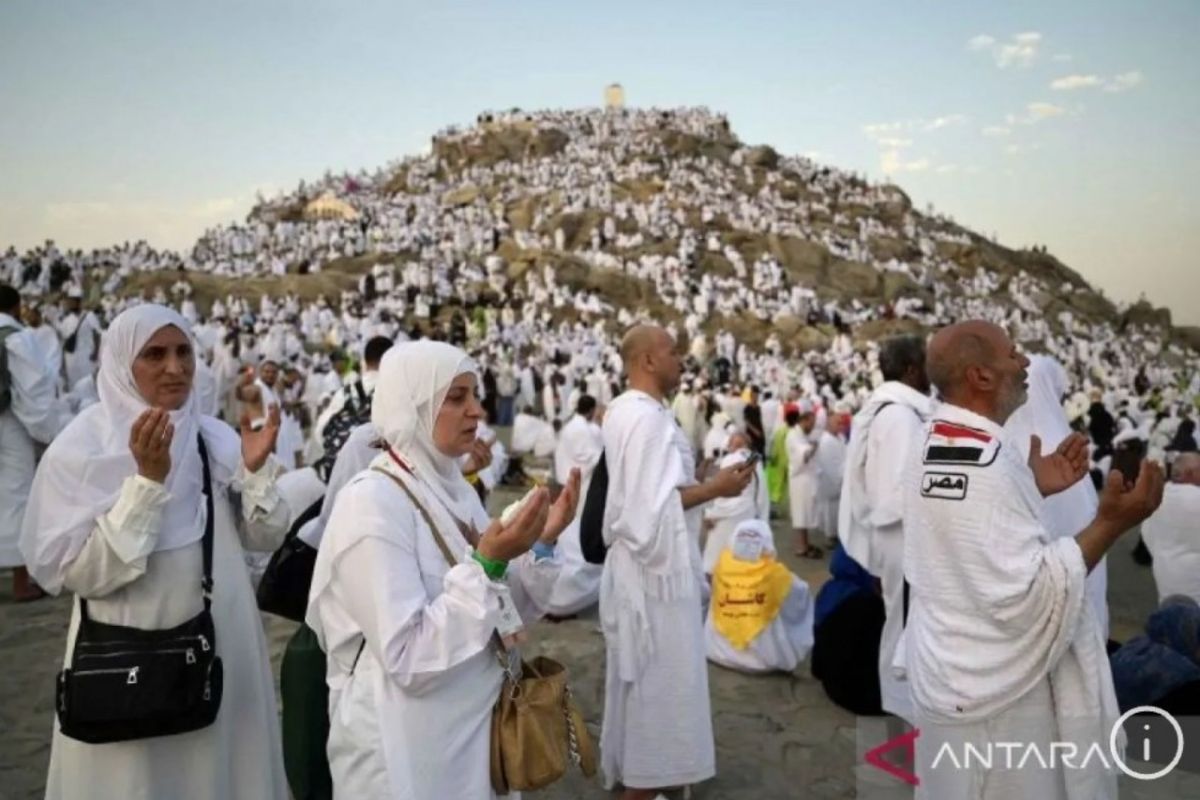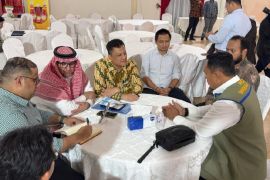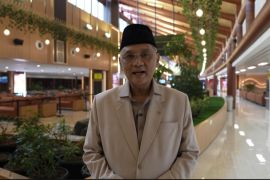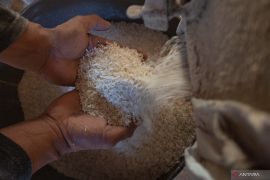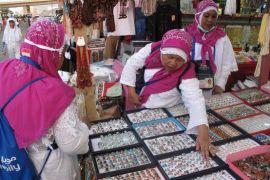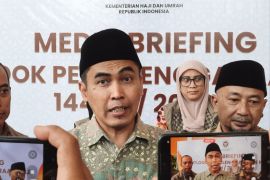"For example, while performing wukuf at Arafah, there is extreme weather with high temperatures, which often leads to dehydration, heat stroke, and exhaustion," the ministry's Director of Health Services for Vulnerable Groups, Imran Pambudi, stated here on Monday.
Hence, he emphasized the need for shelter, adequate hydration, and medical supervision for the elderly to mitigate these risks.
Other Hajj worship activities requiring caution include the thawaf ifadah, or circumambulating the Kaaba seven times in a counterclockwise direction.
The crowded conditions during this ritual expose the elderly pilgrims to injury, fatigue, and respiratory risks. He emphasized that the elderly may require assistance and aids such as wheelchairs.
Furthermore, the physically demanding sa'i ritual, which involves walking back and forth between the hills of Safa and Marwah, can trigger fatigue and joint problems for the elderly.
"Elderly individuals can use mobility aids or take breaks during sa'i if necessary," he stated.
Related news: Ministry deploys 188 health officers for Hajj pilgrims in Saudi Arabia
Additionally, he noted that the jamrah, or the "Stoning of the Satan" in Mina, which involves long distances and crowds, can also elevate risks of fatigue, dehydration, and injury.
Hence, to ensure safety, Pambudi suggested that the elderly perform the Stoning of the Satan ritual during quieter periods or delegate it to Hajj Badal representatives when necessary.
The Indonesian government has integrated pilgrim health data into the Hajj Health Information System (Siskohatkes).
Before departing, prospective Hajj pilgrims must meet the health criteria, including physical and mental fitness, to ensure readiness for the long journey and various acts of worship.
Related news: Government prepares polio vaccines for Hajj pilgrims, officers
Translator: Lintang, Kenzu
Editor: Yuni Arisandy Sinaga
Copyright © ANTARA 2025
